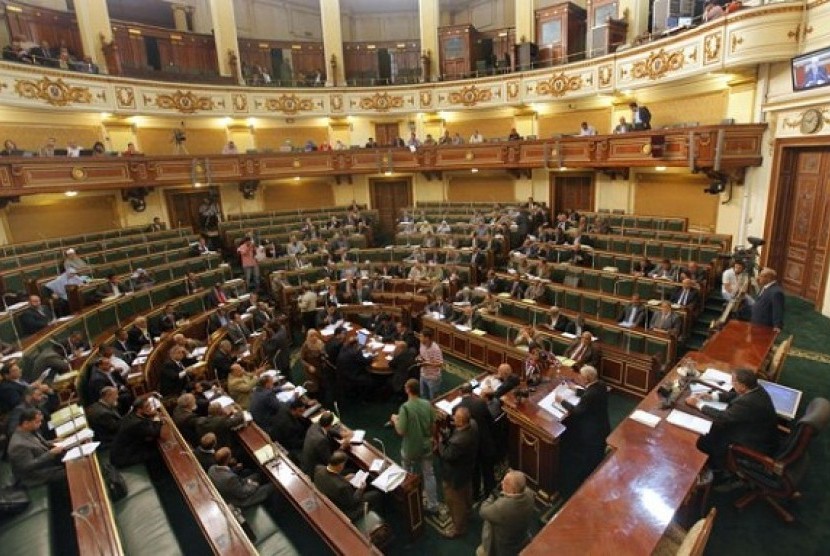REPUBLIKA.CO.ID, CAIRO — Egypt's highest court ruled on Sunday that the nation's Islamist-dominated legislature and constitutional panel were illegally elected, dealing a serious blow to the legal basis of the Islamists' hold on power.
The ruling by the Supreme Constitutional Court says that the legislature's upper house, the only one currently sitting, would not be dissolved until the parliament's lower chamber is elected later this year or early in 2014. The constitutional panel has already dissolved after completing the charter.
The ruling deepens the political instability that has gripped the country since the overthrow of authoritarian leader Hosni Mubarak more than two years ago.
The same court ruled to dissolve parliament's lower chamber in June, a move that led to the promotion of the normally toothless upper chamber, the Shura Council, to becoming a law-making house. The Shura Council, long derided as nothing more than a talk shop, was elected by about seven percent of the electorate last year.
It was not immediately clear whether the ruling on the 100-member constitutional panel would impact in any way on the charter it drafted. The constitution was adopted in a nationwide vote in December with a relatively low turnout of about 35 percent.
But even if it does not, the ruling will question the legal foundations of the disputed charter pushed through by allies of President Mohammed Mursi in an all-night session late last year. Critics say the charter restricts freedoms and gives clerics a say in legislation.
In what appeared to be an attempt to remove any confusion over the ruling, Mursi's office issued a brief statement in which it emphasized that all state institutions must respect the constitution, that the Shura Council will continue to function as the nation's legislature and that the president will ensure that all the branches of state are fully functioning.
Regardless of its consequences on the ground, Sunday's ruling is likely to prolong the polarizing political transition that followed Mubarak's overthrow. Rival political groups disagree not just on policies and the future course of the nation but on the legitimacy of the basic institutions of government.
It will give heart to the mostly secular and liberal opposition, while providing fresh ammunition to the argument often repeated by the president's supporters that the judiciary is filled with Mubarak loyalists determined to derail the nation's political process.


